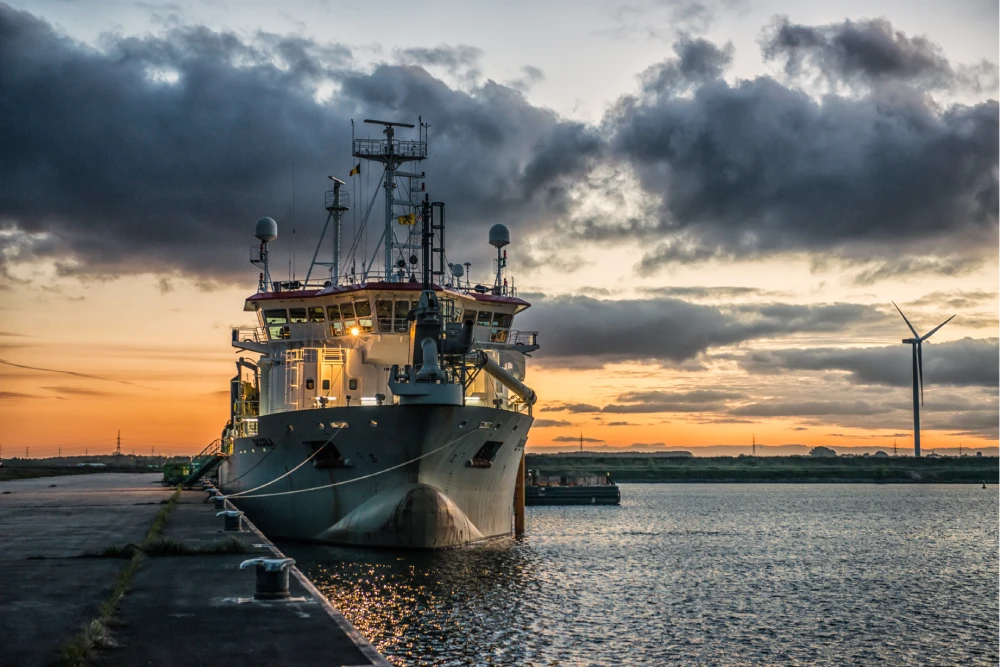The Impact of Maritime Law on Louisiana Injury Cases: Navigating Complex Waters
Louisiana has a rich maritime heritage. From bustling ports and oil rigs in the Gulf of Mexico to the vast network of rivers and bayous, the state’s economy and culture are heavily intertwined with its waterways. Unfortunately, the maritime industry also presents unique risks for workers and visitors alike.
If you’ve been injured on Louisiana’s navigable waterways or in an offshore setting, it’s crucial to understand that maritime law governs your case. This complex body of law differs significantly from the standard personal injury laws applied to land-based accidents.
This blog post explores the impact of maritime law on Louisiana injury cases, covering offshore injuries, accidents on navigable waterways, relevant laws, and the importance of specialized legal representation.
Understanding Maritime Law
Maritime law, also known as admiralty law, is a set of federal laws and legal traditions that govern activities and incidents on navigable waters. It encompasses a wide range of issues, including:
- Shipping and navigation
- Commercial activities (fishing, cargo transport, etc.)
- Offshore drilling and energy production
- Recreational boating
- Injuries and deaths of maritime workers
Who is Considered a Maritime Worker?
The term “maritime worker” is broader than you might think. It includes:
- Seamen: Crew members on various vessels (ships, barges, tugboats, etc.)
- Offshore workers: Individuals working on oil and gas platforms, drilling rigs, or support vessels.
- Longshoremen and harbor workers: Those involved in loading and unloading cargo, and ship repair.
Types of Maritime Injury Cases in Louisiana
Maritime injuries can occur in numerous scenarios, including:
- Vessel collisions: Accidents involving ships, barges, or other watercraft.
- Slip and fall accidents: Slippery decks, equipment malfunctions, or inadequate safety gear can lead to serious falls.
- Explosions and fires: These remain an inherent risk on oil rigs and vessels.
- Equipment failures: Malfunctioning machinery, winches, or cranes can cause severe injuries.
- Exposure to hazardous substances: Oil, chemicals, or other toxic materials are common in maritime workplaces.
Key Maritime Laws Impacting Louisiana Injury Cases
- The Jones Act: This law protects the rights of injured seamen, allowing them to sue their employers for negligence that contributed to their injuries. It provides avenues for compensation beyond standard workers’ compensation benefits.
- The Longshore and Harbor Workers’ Compensation Act (LHWCA): Provides workers’ compensation benefits to maritime workers injured on navigable waters or in certain adjoining land-based areas (docks, terminals, etc.).
- Death on the High Seas Act (DOHSA): Allows families of those killed more than three nautical miles offshore to sue for damages.
Navigating Louisiana Maritime Injury Cases: Why You Need Experienced Counsel
Maritime injury cases in Louisiana present significant legal hurdles. Here’s why specialized representation is essential:
- Jurisdictional complexities: Determining which laws apply (state laws, federal maritime laws, or a combination) requires in-depth legal knowledge.
- Establishing negligence: Proving negligence by shipowners, employers, or vessel operators often needs maritime industry expertise and access to specialized investigators.
- Calculating damages: Maritime law allows for specific types of damages, like lost wages, future earning potential, pain and suffering, and maintenance and cure (costs of medical care and living expenses).
Statistics Highlighting Louisiana’s Maritime Risks
- Louisiana Offshore Accidents: The Bureau of Safety and Environmental Enforcement reports that between 2008 and 2022, there were over 6,200 injuries and nearly 100 deaths related to offshore oil and gas operations in the Gulf of Mexico, many involving Louisiana workers.
- Commercial Shipping Accidents: The Mississippi River and the Port of New Orleans see significant vessel traffic. Collisions, groundings, and other incidents pose risks to crew members and workers along the waterways.
Finding the Right Representation
Choosing a personal injury lawyer who specializes in maritime law is crucial for maximizing your potential compensation and protecting your rights. Look for an attorney that has:
- Extensive experience handling Jones Act and LHWCA claims
- A proven track record of success in maritime cases
- In-depth knowledge of Louisiana’s maritime industry and its hazards
Don’t Let Your Rights Be Washed Away
If you’ve been injured in a maritime accident in Louisiana, don’t navigate these complex waters alone. Time limits for filing claims can be short. Consulting with an experienced maritime injury lawyer is essential to protect your rights and obtain the full compensation you deserve.





